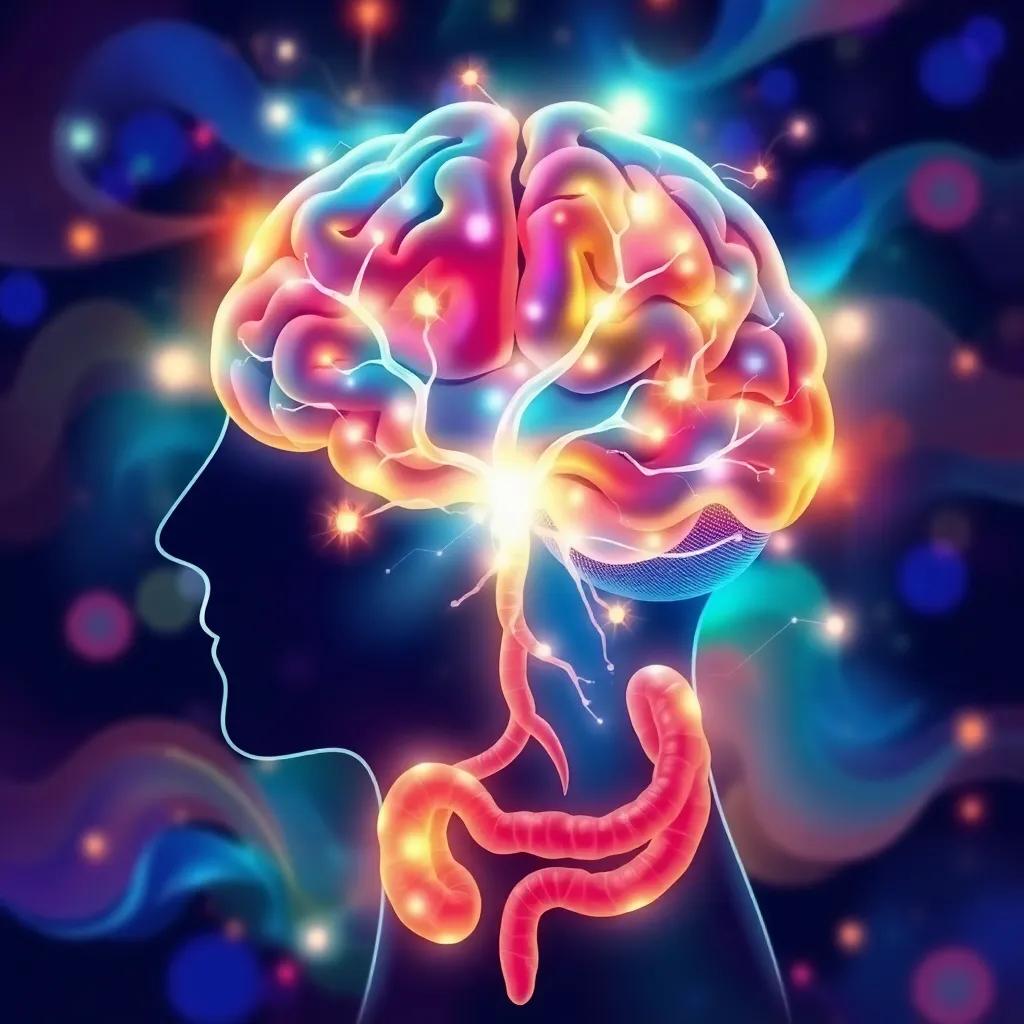Exploring the latest research on the gut microbiome’s role in weight management, metabolic health, and mental well-being, with expert insights and dietary recommendations.
Recent studies reveal the profound impact of gut health on weight, metabolism, and even mental well-being, offering new dietary strategies for better health.
The Gut-Brain Connection: How Gut Health Affects Weight and Metabolism
The gut microbiome, a complex community of trillions of microorganisms living in our digestive tract, has emerged as a key player in regulating weight, metabolism, and even mental health. Recent research has shed light on the intricate ways these microbes influence our bodies, from nutrient absorption to hormone production.
The Science Behind the Gut-Brain Axis
The gut-brain axis is a bidirectional communication system between the gastrointestinal tract and the central nervous system. This connection is mediated through neural, endocrine, and immune pathways,
explains Dr. Emeran Mayer, a gastroenterologist and author of The Mind-Gut Connection. The gut microbiome plays a crucial role in this communication, influencing everything from appetite regulation to mood.
A 2021 study published in Nature found that specific gut bacteria can produce neurotransmitters like serotonin and GABA, which are critical for mental health. The study, led by Dr. Jane Foster at McMaster University, demonstrated that mice with altered gut microbiomes showed significant changes in behavior and metabolism.
Gut Health and Weight Management
Research has consistently shown that the composition of the gut microbiome differs between lean and obese individuals. Certain bacteria, such as Firmicutes and Bacteroidetes, are more prevalent in obese individuals and may contribute to increased energy harvest from food,
notes Dr. Rob Knight, a microbiologist at the University of California, San Diego, in a 2020 press release.
A landmark 2013 study published in Science transplanted gut bacteria from obese mice into lean mice, resulting in significant weight gain in the latter. This groundbreaking research, conducted by Dr. Jeffrey Gordon at Washington University, highlighted the direct role of gut microbes in obesity.
Probiotics, Prebiotics, and Fermented Foods
Incorporating probiotics (live beneficial bacteria) and prebiotics (food for these bacteria) can help restore a healthy gut microbiome. Fermented foods like yogurt, kefir, and sauerkraut are excellent sources of probiotics,
says Dr. David Perlmutter, author of Brain Maker. Meanwhile, prebiotic-rich foods like garlic, onions, and asparagus feed the good bacteria already present in your gut.
A 2017 meta-analysis in Obesity Reviews found that probiotic supplementation led to modest but significant reductions in body weight and BMI. The study analyzed data from 25 randomized controlled trials, providing strong evidence for the role of probiotics in weight management.
Dietary Recommendations for Gut Health
To support a healthy gut microbiome, experts recommend:
- Eating a diverse range of plant-based foods (aim for 30 different types per week)
- Including fermented foods in your daily diet
- Limiting processed foods and artificial sweeteners
- Consuming adequate fiber (25-38 grams per day)
- Staying hydrated and managing stress
Dr. Tim Spector, professor of genetic epidemiology at King’s College London, emphasizes in his book The Diet Myth: There’s no one-size-fits-all approach to gut health. The key is diversity – both in your diet and in your microbiome.
The Future of Gut Health Research
Emerging research is exploring personalized nutrition based on an individual’s unique microbiome composition. The American Gut Project, the world’s largest crowdsourced microbiome study, continues to uncover new insights into how our gut bacteria influence health.
As Dr. Jack Gilbert, microbial ecologist at the University of California, San Diego, stated in a 2019 TED Talk: We’re just beginning to understand the profound ways our microbial partners shape our health. The future of medicine may lie not in our human cells, but in the trillions of microbes that call us home.




